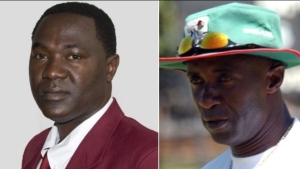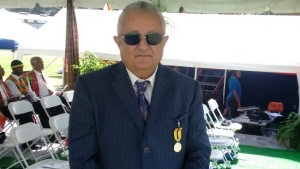Senior counsel and former advisor to the West Indies Cricket Board, Anthony Astaphan, has raised concerns about the legality of Cricket West Indies’ (CWI) president Dr Kishore Shallow’s recent reprimand of Barbados Cricket Association (BCA) boss, Conde Riley.
In a letter dated October 5 and signed by Dr Shallow, it was alleged that Riley, a seasoned cricket administrator, exhibited recent deeply unsatisfactory conduct in his roles as a director of CWI and chairman of a CWI Committee.
While CWI did not take any action against Riley, it cautioned him of the possibility of future repercussions if his behavior was not addressed.
However, in the absence of a CWI Ethics Committee, Astaphan, a prominent legal figure in the Caribbean, believes that it is challenging to definitively determine the situation between Riley and Dr Shallow.
He contends that it raises more questions than answers regarding Dr Shallow’s legal authority to reprimand Riley without due process.
“I think some questions need to be asked and some questions need to be answered. For example, was there a board of director’s decision in relation to the letter that the chairman or the president sent to Mr. Riley authorizing it?” Astaphan asked while appearing on the popular Mason and Guest radio programme on Tuesday night.
Astaphan cited several similar instances, including the removal of attorney-at-Law, Calvin Hope, as BCA’s director on the CWI Board last year during Ricky Skerritt’s tenure as the head of the regional cricket body.
“The director, who at the time faced the prospect of an ethics complaint made by the then president (Skerritt), is that the rules seem to require a complaint to be made to the Ethics Committee first and for the director against whom the complaint is made to be given the opportunity to be heard before an independent and impartial board, which is the Ethics Committee,” Astaphan pointed out.
Astaphan, who served as CWI’s advisor on recommendations for the CARICOM final report on cricket governance in 2015, suggested that the absence of an Ethics Committee raises serious procedural questions about whether there was due process, or if the letter was the result of an impartial and independent action.
“Putting all of that aside, whether or not Mr. Riley was given the opportunity to be heard by the chairman, I think that’s an empty question because I do not think the chairman has the authority to act on his own in these matters. I mentioned earlier that I think the only decision the board could have made or could make was to refer the matter to the Ethics Committee so it could be dealt with in accordance with due process, without impartiality and the possibility at least of the appearance of bias,” the attorney-at-law added.
Astaphan stressed that those issues need to be addressed to ascertain whether there were procedural irregularities, an abuse of authority, or the potential for bias in the Dr Shallow’s letter, particularly if Riley was not granted the opportunity to present his side.
The conflict between Riley and Dr. Shallow became public during their appearance on the Mason & Guest radio show where they clashed over the hosting of the 2024 ICC Men’s T20 World Cup final.
At the time Dr Shallow criticized Riley for his alleged inaccurate public statement concerning a letter from the International Cricket Council (ICC) to the BCA, claiming that Kensington Oval had been awarded the final.





























